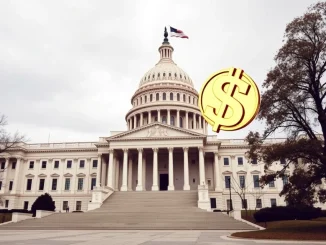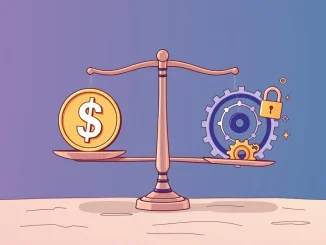
For anyone following the evolving landscape of digital finance, particularly in active markets like South Korea, news regarding regulatory frameworks is always a hot topic. The stability and utility of digital assets, especially stablecoins, are central to their potential widespread adoption. Against this backdrop, the latest comments from the Bank of Korea (BOK) Governor, Rhee Chang-yong, shed light on the central bank’s proactive approach to navigating the complexities of stablecoin regulation.
Bank of Korea’s Stance on Stablecoin Regulation
Governor Rhee Chang-yong recently articulated the Bank of Korea’s position, emphasizing the need for a robust regulatory framework for stablecoins. According to a report by SBS Biz, the central bank isn’t working in isolation but is actively collaborating with other relevant agencies in Korea. The primary goal? To develop regulations that not only ensure the stability and utility of stablecoins but also crucially prevent their misuse, particularly in circumventing foreign exchange controls.
This highlights a key challenge regulators face globally: how to harness the innovative potential of fintech tools like stablecoins while mitigating risks associated with financial stability and illicit activities. Governor Rhee acknowledged that while stablecoins offer significant contributions to innovation within the fintech sector, their growing capability to act as substitutes for traditional legal tender raises substantial regulatory concerns.
Key points from the BOK’s perspective:
- Collaboration: Working with multiple agencies to create a unified approach.
- Dual Focus: Balancing stablecoin stability and utility with preventing regulatory arbitrage.
- Specific Concern: Preventing the use of Korean stablecoins to bypass foreign exchange regulations.
- Acknowledging Innovation: Recognizing stablecoins’ positive impact on fintech.
- Identifying Risk: Addressing concerns arising from stablecoins functioning like legal tender.
Joining the Global Push: Project Agorá
The Bank of Korea’s efforts aren’t confined to domestic regulation alone. Governor Rhee also revealed the BOK’s participation in a significant international initiative: the Bank for International Settlements’ (BIS) Project Agorá. This project is a public-private collaboration focused on exploring the potential of tokenized bank deposits and institutional central bank digital currencies (CBDCs).
Project Agorá aims to achieve ambitious goals on a global scale:
- Establishing Infrastructure: Building a global digital financial infrastructure.
- Reducing Costs: Specifically targeting the reduction of costs associated with cross-border payments.
- Exploring Concepts: Investigating how tokenized deposits and institutional CBDCs can interact and function effectively in a digital environment.
The BOK’s involvement in Project Agorá signifies Korea’s commitment to being part of the conversation and development of future global digital finance standards. It indicates an understanding that digital currency regulation and infrastructure development require international cooperation.
Why This Matters for the Crypto Landscape
The BOK’s clear stance on stablecoin regulation, coupled with its participation in international projects like Project Agorá, sends a strong signal. It indicates that major economies are moving beyond simply observing the digital asset space and are actively working on integrating it into existing or new financial frameworks. For users and developers of Korean stablecoins, this means anticipating clearer rules, but also potentially stricter controls aimed at maintaining financial integrity and preventing loopholes.
This move by the Bank of Korea, in conjunction with global efforts led by the BIS, underscores the growing importance of stablecoins and CBDCs in the future of finance. It’s a complex balancing act: fostering innovation while ensuring stability and compliance. How these frameworks develop will significantly shape the utility and adoption of digital currencies in the years to come.
Conclusion: Navigating the Future of Digital Finance
The comments from the Bank of Korea Governor highlight a critical phase in the evolution of digital finance. By actively working on domestic stablecoin regulation to prevent loopholes and participating in international initiatives like BIS Project Agorá, Korea is positioning itself at the forefront of shaping the future financial landscape. This proactive approach aims to leverage the benefits of digital innovation while safeguarding against potential risks, setting a precedent for how economies might integrate digital assets responsibly.



